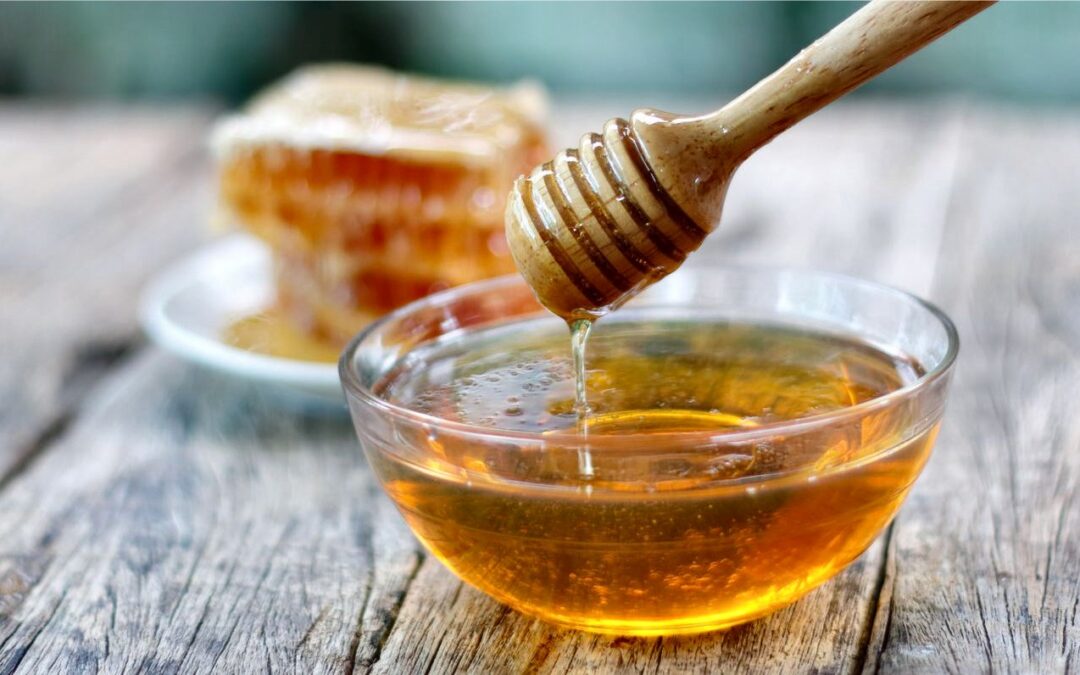Nature never ceases to amaze us with its bounty of health-boosting substances, and one such marvel is Manuka honey.
Renowned for its exceptional qualities, this unique honey variety has gained widespread recognition and popularity in recent years. Derived from the nectar of the Manuka tree (Leptospermum scoparium) native to New Zealand, Manuka honey possesses an array of extraordinary properties that sets it apart from other types of honey.
In this article, we delve into the numerous benefits of Manuka honey, exploring its medicinal properties, skin health advantages, and its potential role in promoting overall well-being.
1. Potent Medicinal Properties:
One of the key reasons for the increasing fascination with Manuka honey is its potent medicinal properties. It is renowned for its high levels of naturally occurring bioactive compounds, including methylglyoxal (MGO) and hydrogen peroxide. MGO is primarily responsible for the unique antibacterial activity of Manuka honey, making it an effective natural remedy for combating various bacterial infections, including those caused by Staphylococcus aureus and Helicobacter pylori. The hydrogen peroxide content further enhances its antibacterial prowess.
2. Wound Healing and Skin Health:
Manuka honey has been revered for centuries for its exceptional wound healing properties. Its ability to stimulate tissue regeneration and reduce inflammation makes it a valuable asset in the treatment of wounds, burns, and ulcers. The antibacterial properties of Manuka honey also aid in preventing infection and promoting a clean healing environment. Additionally, its natural moisturizing properties make it a nourishing ingredient in skincare products, providing hydration and promoting a healthy complexion.
3. Digestive Health and Ulcer Treatment:
Manuka honey has shown promise in supporting digestive health. It has been observed to possess antimicrobial activity against certain bacteria, such as Helicobacter pylori, which is associated with the development of stomach ulcers. Consuming Manuka honey may help inhibit the growth of these bacteria and contribute to the healing process of gastric ulcers. Furthermore, Manuka honey has been reported to aid in soothing gastrointestinal discomfort, supporting overall digestive well-being.
4. Immune System Support:
Regular consumption of Manuka honey can help strengthen the immune system due to its rich antioxidant content. Antioxidants combat free radicals in the body, which are known to contribute to cellular damage and weaken immune function. By neutralizing free radicals, Manuka honey helps protect the body’s cells from oxidative stress, promoting a healthy immune response.
5. Oral Health Benefits:
Manuka honey’s antibacterial and anti-inflammatory properties extend to oral health as well. It can assist in maintaining oral hygiene by inhibiting the growth of harmful oral bacteria, reducing plaque formation, and preventing gum diseases such as gingivitis. Some studies suggest that Manuka honey may be effective against common oral pathogens, including Streptococcus mutans, which is associated with tooth decay.
Conclusion:
Manuka honey is undoubtedly a remarkable natural substance with a myriad of benefits. Its unique composition and exceptional medicinal properties make it a valuable addition to our wellness routines. From its potent antibacterial activity to its ability to promote wound healing, support digestive health, boost the immune system, and enhance oral hygiene, Manuka honey continues to captivate researchers and health enthusiasts alike. Whether used topically or consumed internally, incorporating Manuka honey into our lives may contribute to improved overall well-being and a healthier, more radiant existence.
We hope you found the information above useful. Leave a comment below, or contact us if you have any questions.
